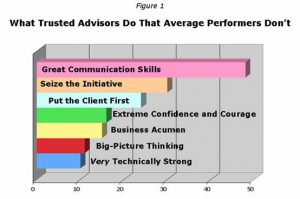To many small business owners it may seem perfectly logical to bring in an IT support specialist as and when you have an identified need. But the reality is that the one-off approach to IT support issues leaves many holes and doubts and it can prove expensive.
We work with business owners and senior management of organizations with less that 200 staff providing a one-stop shop for all their IT infrastructure needs. We have been doing since 1996. Over this time we regularly come across the same, repeated concerns facing SME management. Regardless of business sector, the same challenges continue to crop up. One of the big recurring issues is to do with the cost – the true cost – of one-off IT support.
“We don’t know what we don’t know…”
This issue of the true cost of one-off support falls into the “we don’t know what we don’t know” category.
For many owners of small businesses, dealing with IT support and maintenance is the same as dealing with car maintenance. In other words, it’s OK with the “known knowns” e.g. a printer isn’t working/a tire is flat, BUT how do you deal with the “unknown unknowns”? How do you deal with the problems that I don’t know about, like security, malware protection, data leakage?
A lack of consistency leads to cost in-efficiency
Over reliance on “one-off” support can expensive. Here is a typical scenario: You have a problem, for example User A can’t print, so you get external technical support to come in and fix it. They update the printer software and get User A printing and leave. BUT, the very next day, Users B & C can’t print either, so you call the IT support people back in again for yet another fix ….AND yet another fee!
The business impact of your over-reliance on one-off support means that you do not have the consistency and cost efficiency of a centralised and holistic approach that would instead install printers centrally, and roll out appropriate changes and updates to all users via a centralised policy.
Two further examples of how the small business owner’s lack of knowledge is a big exposure for the business:
[1] You bring in external IT support to solve a problem and yet they break other components…and you have know way of knowing.
[2] You can’t determine whether quotes to repair/upgrade are valid, realistic and appropriate.
If you would like to discuss this issue and what it means for your business, please get in touch. Since inception in 1996, PASR Technologies has been providing SME business owners with a level of service and support to the SME business owner that is typically only directly available in very large organisations.
Servicing businesses from 10 to up to 200 employees, our clients range from local SMEs through to regional offices of larger MNCs, and include airlines.
At PASR Technologies, we solve your IT problems before you even realize you have one!







